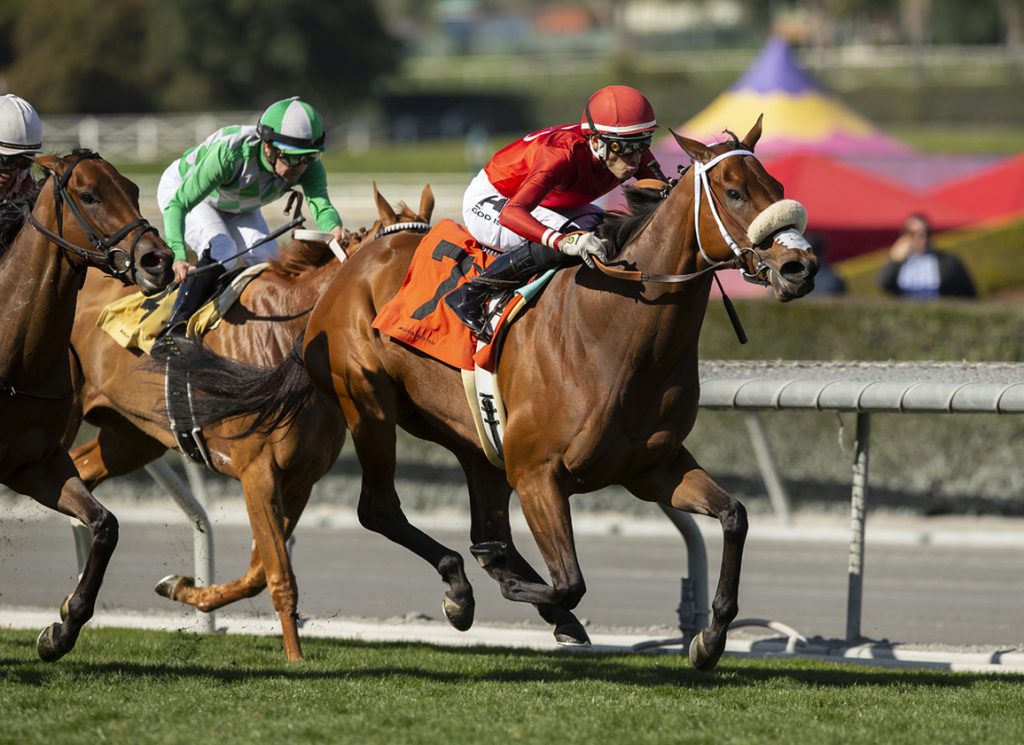Joe Miller, the leading bloodstock advisor and American representative for Tattersalls, has put forward the value on offer in Britain comparable to America as one of the main reasons behind the increasing levels of interest among international buyers getting involved at the Craven Breeze-Up Sale.
A number of top American buyers are reported to be making the trip to Newmarket for the Craven Sale in just over a week's time and Miller, best known in Europe for playing a leading role buying for Red Baron's Barn and Rancho Temescal's racing operation at the horses-in-training sales, is looking forward to returning to the breeze-up scene this month.
“Last year was our first year shopping the Craven Sale and we're looking forward to going back,” Miller said. “It's incredibly difficult to buy the horses that you really like at the breeze-up sales in America. If you don't have two hundred to four hundred thousand dollars to spend, it's hard to even get your hand up.
“My experience of the Craven last year was that, with the horses we bought or even with the horses that we liked but didn't end up buying, you could get a really nice racehorse for much less than you could in America. You can get much better value for your money at the Craven Breeze-Up Sale at Newmarket. If you are shopping at the seventy five thousand to one hundred and fifty thousand mark, you can buy horses that you really like for that money at Tattersalls and you don't have to talk yourself into it either. That's what has really convinced us to go back and do it all again this year.”
Miller bought two horses at the Craven Sale last year, both of whom ended up racing for William Jarvis in England. He is hoping to fill a similar brief when he returns to Newmarket for the sale that takes place on April 18 and 19 but revealed that he would be buying for new investors who are commercially-minded.
He explained, “We're going to try and buy a few horses there this year with the view towards leaving them in England to race and they may be sold on in the future. We also might buy a couple of horses with the idea of running them a couple of times and bringing them back to America to run at Del Mar. We're going to be looking to do both of those things. The ship and win bonuses in California is a big plus for us. If you run a time or two outside of California before the Del Mar meet and then you ship in, you run for a substantial purse bonus, so that is very appealing to us. We've done so well with these European grass horses that we said we'd try to source them a little earlier in their careers.”
Miller added, “We bought two horses at the sale last year and they ran for William Jarvis. One of the horses was Dandy Man Shines (Ire) (Dandy Man {Ire}), who William did a great job with. He ran third on debut before finishing fourth in a Group 2 and then shipping out to America. I think it's a very good foundation for a horse to get them started in Britain. He wasn't a particularly expensive horse at 105,000gns and we'll be shopping in a similar price range at the Craven.
“This is a completely different venture to the Red Baron's Barn operation. Moving forward, Rancho Temescal is going to be in a racing partnership format with Tim Cohen and myself being the managers but we will also be bringing in some outside investors and will be specifically shopping for racehorses privately and at the Tattersalls horses-in-training sales. We're going to be very active at the sales this year on behalf of the Rancho Temescal Thoroughbred Partners racing venture but shopping at the Craven is a different deal this year. There are different people involved and we will be looking at possibly selling some horses further down the road.”
So what do the American buyers look for at the breeze-up sales? The Craven may be billed as the sale where consignors have the opportunity to sell the dream of owning a Royal Ascot two-year-old but, according to Miller, he is hoping to find a horse for the future rather than one who will burn up the track in the early part of the season.
He said, “We are partial to horses by stallions who we have done well with before. But we are just looking for horses with good physicals and ones who we think are going to like firm and fast ground. I'm not too desperate to buy horses who are going to be incredibly precocious and winning in May. I'm looking for horses who will have a future–the ones for further down the road.”
The post American Buyer Miller Looking Forward To Getting Involved At Craven Sale appeared first on TDN | Thoroughbred Daily News | Horse Racing News, Results and Video | Thoroughbred Breeding and Auctions.




